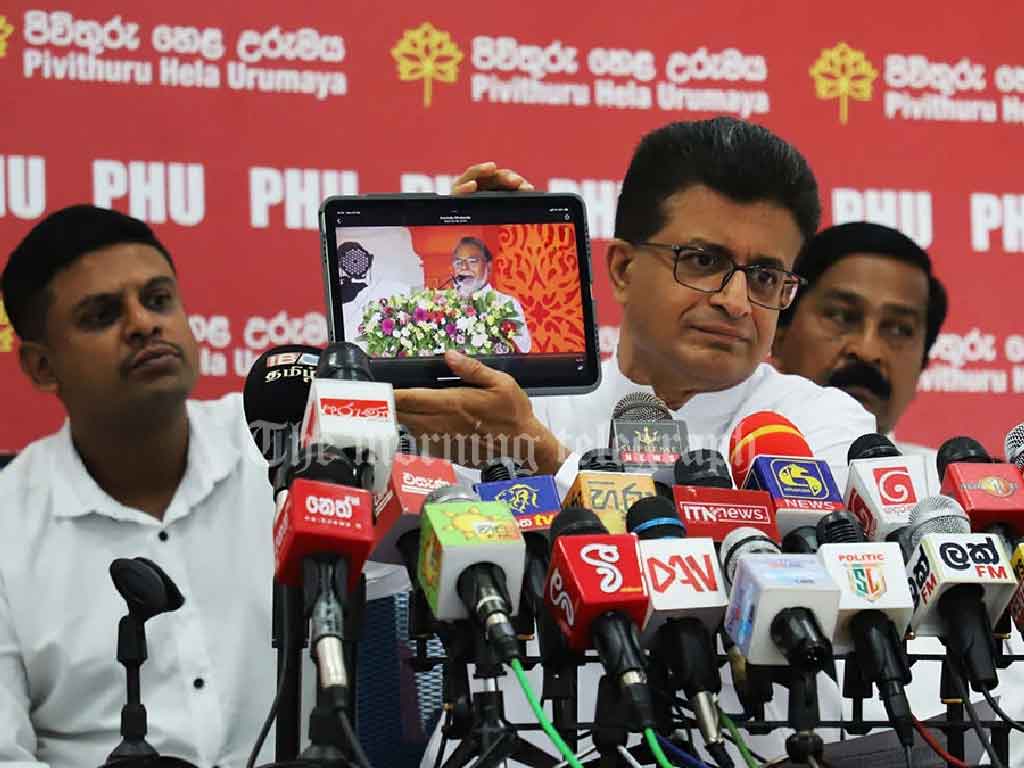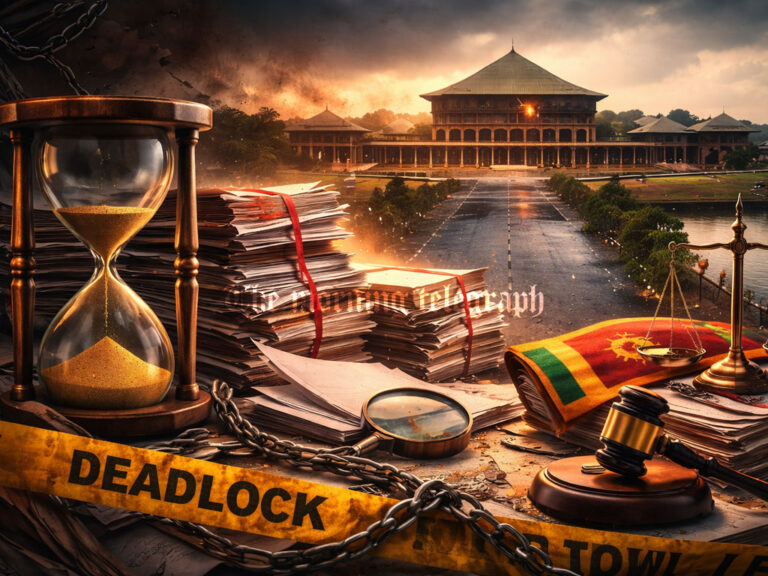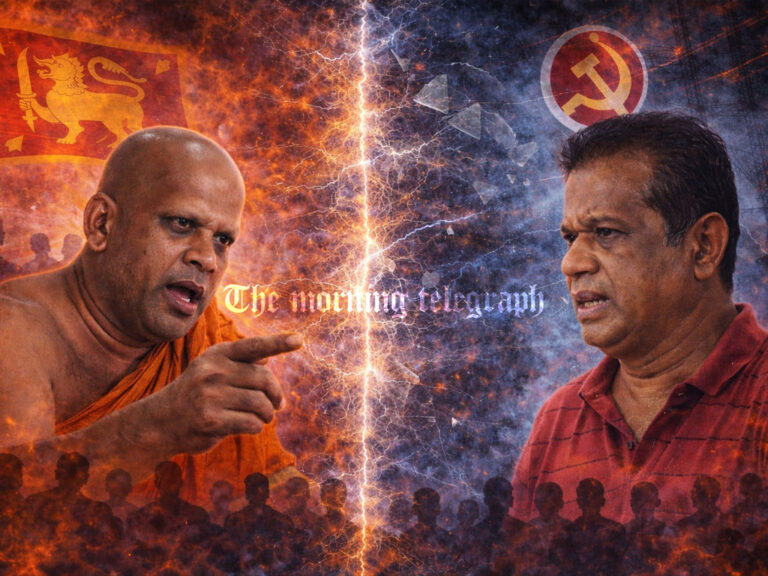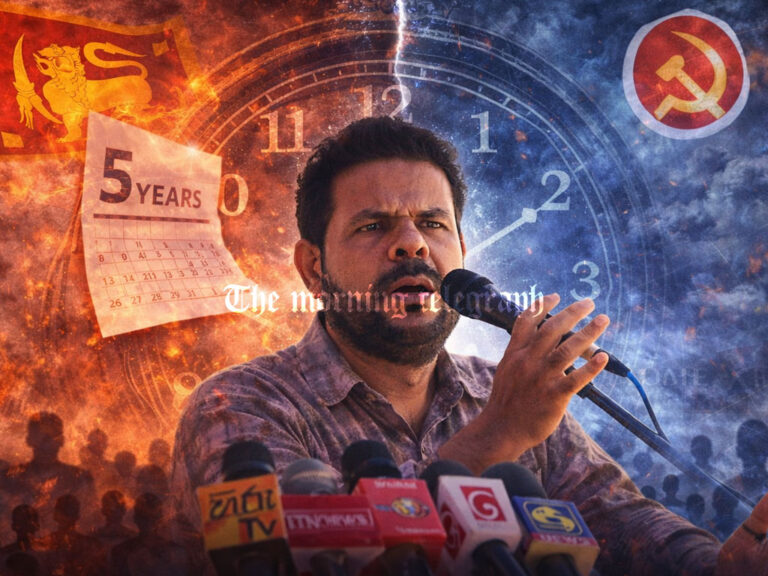
Udaya Gammanpila, a senior lawyer and leader of Pivithuru Hela Urumaya, has strongly criticized President Anura Kumara Dissanayake for questioning the Attorney General’s opinion, asserting that the President lacks the legal authority to do so. He also accused Father Cyril Gamini of manipulating the Easter attack investigation and attempting to blame the country’s intelligence services, which he warned could fuel religious tensions between Buddhists and Catholics.
Speaking at a media briefing held at the Pivithuru Hela Urumaya headquarters, Gammanpila alleged that the government, which promised to reveal the true mastermind behind the Easter attacks, is instead fabricating one by persuading Azad Maulana to commit four crimes in exchange for legal immunity. He claimed Maulana would be released despite being accused of aiding the Easter bombers, marrying under a false name, issuing a fraudulent cheque worth two lakhs, and fleeing the country illegally.
He pointed out that the Kalmunai Magistrate’s Court lifted Maulana’s travel ban on January 21, reinforcing concerns that his testimony is being obtained through improper means. While not opposing Maulana’s return and interrogation, Gammanpila emphasized that using his testimony in exchange for immunity would be fraudulent.
Gammanpila also directed sharp criticism at Father Cyril Gamini, accusing him of acting as the government’s media spokesperson instead of allowing the official investigation to proceed transparently. He noted that instead of answering legitimate questions, Father Cyril chose to attack him personally.
He further accused Father Cyril of obstructing the investigation, revealing that the priest had allegedly planned to announce the so-called mastermind during the launch of a book by Sunanda Deshapriya on September 17, 2024.
According to Gammanpila, Father Cyril claims that a person named Abu Hind is the mastermind, while Cardinal Malcolm Ranjith continues to blame the government for not pursuing the true mastermind. He argued that if Father Cyril truly has such information, he should report it directly to law enforcement, the Cardinal, and the judiciary, rather than making public declarations. He reminded the priest that withholding or concealing crime-related information is a punishable offense.
He also accused Father Cyril of violating the principles of Christianity, stating that interfering in state affairs contradicts the biblical teaching of separating religion and governance. He cited Matthew 22:21, where Jesus said, “Render to Caesar what is Caesar’s, and to God what is God’s.”
Regarding the President’s questioning of the Attorney General, Gammanpila stated that it was inappropriate for the President to interfere in the Attorney General’s legal decisions. He explained that the Attorney General had ruled that there was insufficient evidence to prosecute three individuals suspected of covering up evidence in the Lasantha Wickrematunge case. However, rather than respecting this legal ruling, the President publicly summoned the Attorney General and criticized his competence, with government-aligned media reporting that the President was considering removing him through a parliamentary resolution.
Gammanpila reminded the President that while he has the right to question delays in filing cases, he has no authority to challenge the Attorney General’s legal opinions. He emphasized that such opinions can only be contested in court, not through executive interference.
Citing historical examples, he referred to the 1999 case where a Senior Superintendent of Police arrested High Court Judge Mahanama Thilakaratne on instructions from the Attorney General, and the 2003 case involving a Buddha statue in Trincomalee, where the Attorney General’s decision was overturned in court. He argued that legal opinions should always be reviewed through judicial processes, not political influence.
He warned that forming social pressure against the Attorney General could set a dangerous precedent, forcing legal officers to make decisions based on fear rather than law. He cautioned that such interference would undermine the rule of law and endanger the country’s stability.
In conclusion, Gammanpila urged the President to reconsider his approach, warning against making hasty decisions that could lead Sri Lanka into further instability and lawlessness.




